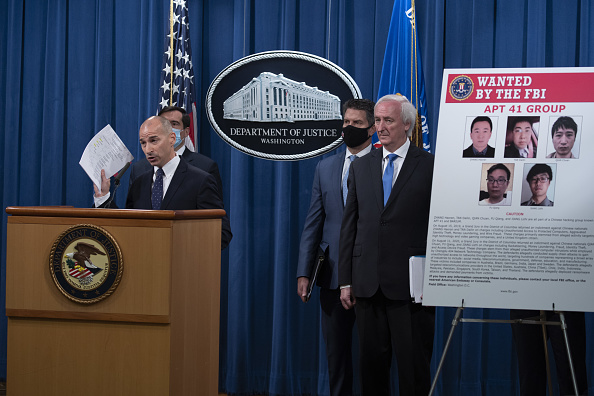
 Digital Domain
Digital DomainPresident Trump today announced that downloads of Chinese apps WeChat and TikTok won't be allowed in the U.S. after Sunday, September 20, following prolonged disputes over privacy and data concerns. As of Sunday, any moves to distribute or keep WeChat or TikTok on an app store in the U.S. will be barred. The Commerce Department has signaled its plans to fully ban TikTok by November 12th, unless the Chinese technology company can strike a deal with a U.S. company before then, in which case the ban could be lifted entirely.
The unprecedented move, which drew quick criticism from groups such as the American Civil Liberties Union and even from TikTok rival Instagram, comes after weeks of behind-the-scenes negotiations led to U.S. regulators provisionally agreeing to a deal between Tik Tok's Chinese parent company ByteDance, and Silicon Valley tech giant Oracle, after the companies agreed to set up a board of directors exclusively made up of U.S. citizens, and form a national security board chaired by an American data-security expert.
If this deal goes through, TikTok would still be a majority stakeholder in its company, and it would not share its algorithmic data with its U.S. partner. "As with any cross-border transaction, we will follow the applicable laws," ByteDance General Counsel Erich Andersen said in August. "Conceptually, I can tell you I don't like that," Trump said at a press conference Wednesday, referring to the prospect of ByteDance, TikTok's parent company, holding on to a majority share in the video sharing app. Read more about the tech issues that persist in the U.S.-China relationship in "The Other Global Power Shift", the latest article from Professor Joseph Nye, former Dean of the Harvard's Kennedy School of Government.
 Cyber Espionage Accusations
Cyber Espionage AccusationsThe U.S. Justice Department indicted five Chinese nationals and two Malaysians over cyberespionage charges this Wednesday, accusing them of hacking over 100 companies and institutions in the United States and abroad. The attacks "facilitated the theft of source code, software code signing certificates, customer account data and valuable business information," the department said in a statement.
The accused are currently fugitives, and allegedly used their hacking campaign to steal user data, embed malicious code, and launder illegal products. While the Department of Justice did not directly tie the hacking campaign to the Chinese government, a spokesperson commented that the hackers could be serving as proxies for the Chinese Communist Party due to the alignment of the mission with government interests.
 Democrats Decouple
Democrats DecoupleSenate Democrats put forth one of the most wide-ranging bills to counter and compete with China's rising global influence. Led by minority leader Senator Chuck Schumer of New York, and Senator Bob Menendez of New Jersey, Democrats presented legislation that would cost $350 billion over a decade to cultivate industry and technology in competition with China. President Trump and his Republican allies routinely criticize the Democrats as weak on China, which Democrats say is false.
The bill would strengthen U.S. manufacturing capabilities and infrastructure in an attempt to decouple it from China's economy, and improve American companies' competitiveness. Around $16 billion of the proposed budget would go directly towards bolstering the US semiconductor industry, an industry that has come head-to-head with China's own semiconductor industry in recent years. For more on the Democrats' stance on China, read China in the 2020 U.S. Presidential Election, from David Shambaugh, Gaston Sigur Professor of Asian Studies, Political Science & International Affairs at George Washington University.
Prepared by China-US Focus editorial teams in Hong Kong and New York, this weekly newsletter offers you snap shots of latest trends and developments emerging from China every week, while adding a dose of historical perspective.
- 2020-09-12 Reframing the Ground Rules
- 2020-09-05 Reciprocity in Action
- 2020-08-29 Who’s Tougher on China?
- 2020-08-22 To Talk, Or Not To Talk
- 2020-08-15 Domestic Circulation
- 2020-08-07 Fraying Relations
- 2020-08-01 Turning Tides
- 2020-07-24 Up in Smoke
- 2020-07-17 Status Stripped
- 2020-07-10 A Historic Moment
- 2020-07-03 Handover Tested
- 2020-06-27 Relationship Spiral
- 2020-06-20 Bolton Bombshell
- 2020-06-13 Fits and Starts
- 2020-06-06 Confluence of Crises
- 2020-05-29 Questions of Autonomy
- 2020-05-22 Pandemic Decisions
- 2020-05-16 Fractures and Fault Lines
- 2020-05-09 Attacks and Counterattacks
- 2020-05-02 Retaliatory Actions
